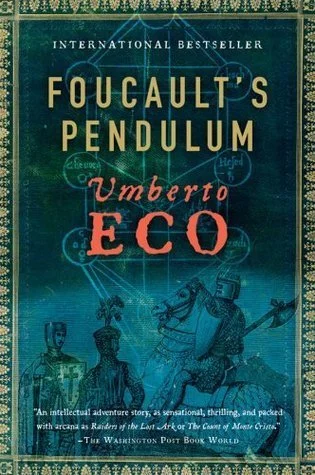What are we reading this Summer?
“It is what you read when you don’t have to that determines what you will be when you can’t help it.” — Oscar Wilde
Reading is to a writer what oxygen is to the brain, what food is to the body. One cannot – and should not – come without the other. They are as complementary as teaching is to learning or … cooking is to tasting.
For Stephen King, "if you don't have time to read, you don't have the time (or the tools) to write. Simple as that”. William Faulkner advises writer to “read, read, read. Read everything—trash, classics, good and bad” comparing the act of reading to carpenter who works as an apprentice and studies the master. Read! You’ll absorb it. Then write." J.K. Rowling underscores the necessity "for any writer, … to read. As much as you can. Like a wolf eats." Neil Gaiman highlights the fundamental difference between writers and non-writer: the former read.
And Hemingway being true to himself emphasizes the importance of lived experience in conjunction with reading, explaining that "in order to write about life, first you must live it. But while you're living it, you should be reading everything you can, getting the knowledge that can feed your imagination and inform your work."
As we head off for the summer, which books will accompany our writers to their exciting destinations, or take them on a journey without leaving home?
Sebastian Remøy, Loretta Fahy, Patrick ten Brink, Jeannette Cook, Jon Filipek, AlexS and Jim Drennan, Brussels, June 2024 (Photo : Authorisation)
Sebastian will be reading Det er Ales [Aliss at the fire], by Nobel laureate Jon Fosse, a 22,000-word-long sentence in Western dialect Norwegian (Nynorsk) with no punctuation or chapters. The book offers a hallucinatory account of a woman living in the frosted land of Norway whose husband goes out at night and unexplainably does not return. "Not much happens in this book apart, obviously, from the deaths of the two Asles. However, as in his other novels, there is a continual sense of foreboding and of gloom. Above all, Fosse paints a superb picture of a very closed-off family”
Loretta picked up the latest Kevin Barry, The Heart in Winter. Set in the American West of the 1890s, this expansive yet psychologically intimate novel from the author of Night Boat to Tangier tracks the dangerously forbidden affair between a torrid young balladeer and the wife of a devout and powerful mine captain.
Jeannette is having a Paul Auster summer; she finished Invisible and is now on to 4 3 2 1. While the plot and narrative technique are very different in both books, Invisible and 4 3 2 1 share Auster's thematic concerns with identity, fate, and his skill in weaving together multiple storylines and perspectives. Invisible is set in 1960s New York and explores the intertwining lives of three characters, their identity, obsession, and the consequences of chance encounters. With 4 3 2 1, Auster follows the four different paths that Archie Ferguson's life could have taken, each version exploring how different circumstances and choices shape his identity and destiny across mid-20th century America. Jeannette is also considering adding a Russian classic to her reading list this summer, such as Dostoevsky’s Crime and Punishment or The Brothers Karamazov.
Jon is currently reading Birnam Wood by Eleanor Catton and The Vaster Wilds by Lauren Groff, and is contemplating which classic to add to his summer reading list. Birnam Wood by Eleanor Catton can be summarized as a haunting exploration of family secrets intertwined with the mystique of a remote New Zealand landscape. The Vaster Wilds by Lauren Groff is a lyrical and introspective journey through the complexities of human emotions and relationships set against the backdrop of expansive and untamed landscapes.
Since both books explore family, emotions, and landscapes, we asked ChatGPT which classic combines these three themes, and the answer was William Faulkner. Suggested works include The Sound and the Fury, As I Lay Dying, and Absalom, Absalom!
AlexS decided to go light this summer and plunged headfirst into Obama's introspective memoir, A Promised Land, which traces his presidency and offers profound insights into politics, race relations and leadership. At the same time, she delved into Hegghammer's Jihadi Culture, which explores the complex cultural dynamics of jihadist movements and their impact on society as well as Crimes of Art + Terror, an exploration by Noah Charney and Russell Martin of the devastating impact of terrorism on the world's heritage, revealing the profound consequences of cultural destruction.
For a lighter read to balance these, we asked ChatGPT for advice, and three suggestions emerged: Eleanor Oliphant Is Completely Fine by Gail Honeyman, Crazy Rich Asians by Kevin Kwan, and The Guernsey Literary and Potato Peel Pie Society by Mary Ann Shaffer and Annie Barrows.
Jim is currently rereading Foucault’s Pendulum and plans to immerse himself in A Little Life after that. "Foucault's Pendulum" by Umberto Eco is a labyrinthine intellectual thriller that explores conspiracy theories, esoteric knowledge, and the blurring lines between reality and fiction—a “wonderfully esoteric” book, according to Jim. A Little Life by Hanya Yanagihara is a profoundly moving novel that follows the lives of four friends in New York City, focusing on one man's harrowing journey through trauma, friendship, and the search for acceptance and healing.
And for more inspiration, we will always have the New York Times’ list of the 100 Best Books of the 21st Century.






